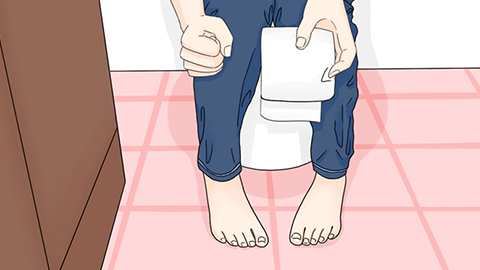Why is constipation common in early pregnancy?
In general, constipation during early pregnancy may be caused by hormonal changes, dietary changes, reduced physical activity, intestinal flora imbalance, hemorrhoids, and other factors. It is recommended to seek timely medical advice, identify the cause, and undergo symptomatic treatment under a doctor's guidance. The specific analysis is as follows:

1. Hormonal Changes: After pregnancy, elevated progesterone levels inhibit the peristalsis of intestinal smooth muscles, prolonging the retention time of food in the intestines and causing excessive water absorption, which leads to constipation accompanied by abdominal distension. Develop a regular bowel habit, attempt defecation after breakfast daily, increase dietary fiber intake (e.g., celery, apples, oats) to promote intestinal motility and relieve constipation.
2. Dietary Changes: Excessive nutritional intake during pregnancy, reduced consumption of whole grains and vegetables, or inadequate water intake can cause dry intestinal contents, making defecation difficult and resulting in constipation. Adjust the diet to ensure sufficient daily intake of vegetables and fruits, maintain a daily water intake of 1500-2000 milliliters, and avoid excessive reliance on refined foods.
3. Reduced Physical Activity: During early pregnancy, due to physical discomfort or concerns about miscarriage, daily activities may decrease, slowing intestinal peristalsis and causing accumulation of fecal matter, which leads to constipation accompanied by physical fatigue. Engage in moderate activities such as walking or prenatal yoga with a doctor's approval, persist for 15-30 minutes daily to promote intestinal motility and aid defecation, avoiding prolonged bed rest.
4. Intestinal Flora Imbalance: During pregnancy, the balance of intestinal flora may be disrupted, with a reduction in beneficial bacteria, affecting food digestion and intestinal motility, leading to constipation accompanied by straining during defecation and dry, hard stools. Under medical guidance, take probiotic preparations such as Bifidobacterium triple viable capsules, Bacillus subtilis and Bifidobacterium bifidum viable granules, or Licheniformis Bacillus viable capsules to regulate intestinal flora and improve constipation symptoms.
5. Hemorrhoids: Slight increases in abdominal pressure during early pregnancy or straining during bowel movements can cause varicose veins around the anus, forming hemorrhoids. Hemorrhoid pain can worsen constipation, creating a vicious cycle, accompanied by pain and bleeding during defecation. Avoid prolonged sitting, do not strain excessively during bowel movements, use medications such as Compound Fucoidan Suppository, Potassium Permanganate Tablets for external use, and Tai Ning Cream as directed by a physician to alleviate hemorrhoid symptoms. Meanwhile, improve constipation through diet and physical activity to reduce hemorrhoid irritation.
Maintain a relaxed mindset in daily life and avoid anxiety caused by constipation, as anxiety can further exacerbate intestinal dysfunction. Avoid prolonged squatting during bowel movements, limiting them to within five minutes to reduce anal pressure. If constipation persists without improvement, inform your doctor and avoid self-medicating.







